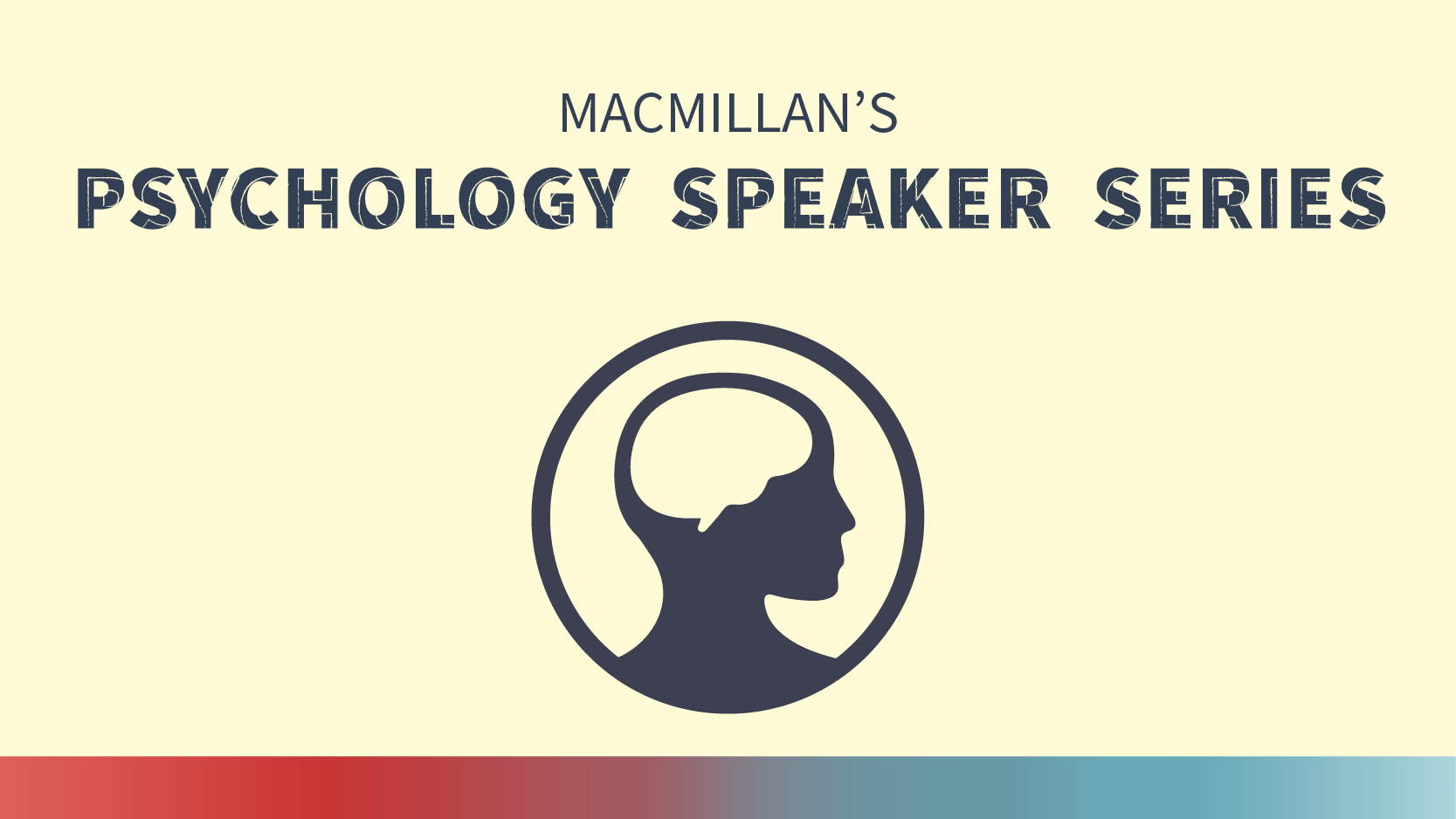-
About
Our Story
back- Our Mission
- Our Leadership
- Accessibility
- Careers
- Diversity, Equity, Inclusion
- Learning Science
- Sustainability
Our Solutions
back
-
Community
Community
back- Newsroom
- Discussions
- Webinars on Demand
- Digital Community
- The Institute at Macmillan Learning
- English Community
- Psychology Community
- History Community
- Communication Community
- College Success Community
- Economics Community
- Institutional Solutions Community
- Nutrition Community
- Lab Solutions Community
- STEM Community
- Newsroom
- Macmillan Community
- :
- Psychology Community
- :
- Psychology Blog
- :
- Psychology Blog - Page 8
Psychology Blog - Page 8
Options
- Mark all as New
- Mark all as Read
- Float this item to the top
- Subscribe
- Bookmark
- Subscribe to RSS Feed
Psychology Blog - Page 8
Showing articles with label Research Methods and Statistics.
Show all articles
Expert
01-13-2016
04:00 AM
As a psychology instructor it is clear to you the myriad ways in which psychology can be used to both understand social issues and speak to solutions. In fact, the APA Guidelines for the Major (2013; see below) encourages us to help our students see the same. Debra Mashek (2016) suggests a few assignments that provide our students opportunities to connect psychology with today’s social issues. Integrative essay The instructor chooses three articles (interesting, nifty methodology, and not too difficult for students to understand – but on the surface may not have anything obviously to do with each other), and assigns one of those articles to each student, i.e. 1/3 of the class gets article A, 1/3 gets article B, and 1/3 gets article C. Each student writes a one-page summary of their assigned article and brings that with them to class. The class breaks up into groups of three, where the groups are composed of students who have all read different articles. In a jigsaw classroom format, the students tell the others in their three-person group about their article. Students then “articulate an applied question that invites application of ideas from all the articles.” Each 3-person group then co-authors a short paper (two to three pages) that identifies their applied question and how each of the three articles speak to that question. Persuasion research activity Right after Hurricane Katrina, Mashek decided she wanted her Intro Psych students to experience psychological research firsthand while also contributing to the relief effort. Mashek gave a brief lecture on foot-in-the-door, door-in-the-face, and reciprocity. She randomly assigned ¼ of students to foot-in-the-door, ¼ to door-in-the-face, ¼ reciprocity (she gave these students lollipops to hand to people before asking for a donation), and ¼ to a command condition (“give money”). During that same class period students were sent out in pairs to different areas of campus to return an hour later. Thirty-five students collected $600. Students reported a greater connection to the victims of Katrina after they returned than they reported before they left. Mashek used this experience as a leaping off point for discussing research methodology in the next class session. Current headline classroom discussion Pick a current headline. Break students into small groups, perhaps as an end of class activity, and give them one or two discussion questions based on the current chapter you are covering that are relevant to the headline. For example, if you are covering the social psychology chapter in Intro Psych, give students this headline from the January 9, 2016 New York Times: “Gov. Paul LePage of Maine Says Racial Comment Was a ‘Slip-Up’.” This is a short article, so you could ask students to read the article itself. Sample discussion questions: (1) What evidence is there of ingroup bias? (2) Do Gov. LePage’s comments illustrate stereotyping, prejudice, and/or discrimination? Explain. If time allows, student groups can report out in class. Alternatively, this could be a group writing assignment or a scribe for the group could post a summary of the group’s responses to a class discussion board. Students will gain an appreciation of the scope of psychology and how it is relevant to today’s social issues. This activity throughout the course should help students, after the course, to continue to see psychology at play. The APA Guidelines for the Major (2013) include these indicators related to social issues: 1.3A Articulate how psychological principles can be used to explain social issues, address pressing societal needs, and inform public policy 3.3c Explain how psychology can promote civic, social, and global outcomes that benefit others 3.3C Pursue personal opportunities to promote civic, social, and global outcomes that benefit the community. 3.3d Describe psychology-related issues of global concern (e.g., poverty, health, migration, human rights, rights of children, international conflict, sustainability) 3.3D Consider the potential effects of psychology-based interventions on issues of global concern American Psychological Association. (2013). APA guidelines for the undergraduate psychology major: Version 2.0. Retrieved from http://www.apa.org/ed/precollege/undergrad/index.aspx Mashek, D. (2016, January 4). Bringing the psychology of social issues to life. Lecture presented at National Institute on the Teaching of Psychology in Tradewinds Island Grand Resort, St. Petersburg Beach. Seelye, K. Q. (2016, January 9). Gov. Paul LePage of Maine Says Racial Comment Was a 'Slip-up'. The New York Times. Retrieved January 9, 2016, from http://www.nytimes.com/politics/first-draft/2016/01/08/gov-paul-lepage-of-maine-denies-making-racist-remarks
... View more
Labels
-
Abnormal Psychology
-
Cognition
-
Consciousness
-
Developmental Psychology
-
Emotion
-
Evolution
-
Gender
-
Genetics
-
History and Systems of Psychology
-
Industrial and Organizational Psychology
-
Intelligence
-
Learning
-
Memory
-
Motivation
-
Nature-Nurture
-
Neuroscience
-
Personality
-
Research Methods and Statistics
-
Sensation and Perception
-
Social Psychology
-
Stress and Health
0
0
7,708
Expert
01-09-2016
11:26 AM
More than one Intro Psych textbook opens with this warning to students: Beware the hindsight bias! And students should beware, of course. Once the findings of a research study are revealed, it is hard for students to turn back the clock to the time when they did not know the results. With the results known, they are likely to label them as obvious; they knew them all along. Steven Pinker (2016) urges us, as instructors, to remember that we, too, fall victim to hindsight bias, the curse of knowledge. We have spent years talking about these Intro Psych concepts. Because we have a difficult time imagining what it was like to not know these concepts, we may rush through our lectures, thinking our students either already know the concepts or can grasp them with quick, concise explanations. How can we, as instructors, keep hindsight bias at bay in the classroom? Pinker says “[t]he best antidote is feedback: Asking students questions; monitoring their reactions, soliciting commentary; querying knowledge through regular assessments.” On the first day of class, as I am explaining the structure of the course, I will explain to my students what the hindsight bias is, how I can’t remember what it was like to not know the content of this course, and how I have built a course designed to keep me informed of what they, the students, are understanding and what they are not as we go, before we get to the high stakes exams. And that I am going to trust them to tell me when they are not following what I am saying. What better way to help students understand a concept like hindsight bias than to immediately use it to explain a common instructor behavior? With the added bonus of showing students how psychology can be used to teach psychology! Pinker, S. (2016, January 3). The sense of style: Writing and teaching in the 21st century. Address presented at National Institute on the Teaching of Psychology in Tradewinds Island Grand Resort, St. Petersburg Beach. [Pinker’s book by the same title has an entire chapter devoted just to hindsight bias if you would like to read more.]
... View more
Labels
-
Cognition
-
Industrial and Organizational Psychology
-
Research Methods and Statistics
1
0
1,427
Topics
-
Abnormal Psychology
19 -
Achievement
3 -
Affiliation
1 -
Behavior Genetics
2 -
Cognition
40 -
Consciousness
35 -
Current Events
28 -
Development Psychology
19 -
Developmental Psychology
34 -
Drugs
5 -
Emotion
55 -
Evolution
3 -
Evolutionary Psychology
5 -
Gender
19 -
Gender and Sexuality
7 -
Genetics
12 -
History and System of Psychology
6 -
History and Systems of Psychology
7 -
Industrial and Organizational Psychology
51 -
Intelligence
8 -
Learning
70 -
Memory
39 -
Motivation
14 -
Motivation: Hunger
2 -
Nature-Nurture
7 -
Neuroscience
47 -
Personality
29 -
Psychological Disorders and Their Treatment
22 -
Research Methods and Statistics
107 -
Sensation and Perception
46 -
Social Psychology
132 -
Stress and Health
55 -
Teaching and Learning Best Practices
59 -
Thinking and Language
18 -
Virtual Learning
26
- « Previous
- Next »
Popular Posts













